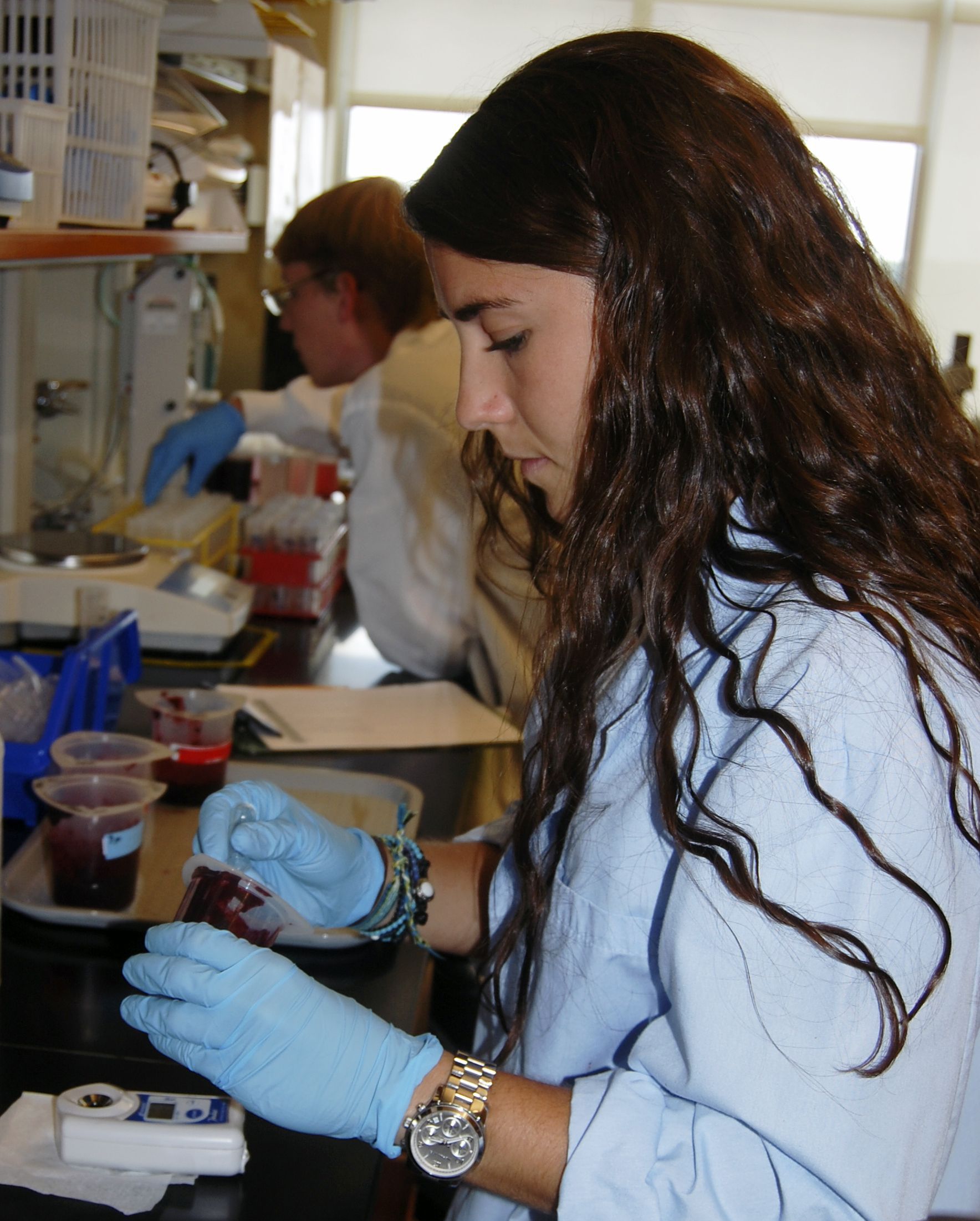Research campus welcomes interns
Published 12:00 am Friday, July 4, 2014
Forty high school, college and doctorate interns are picking and studying fruit to benefit agriculture and human health at the North Carolina Research Campus this summer.
“In this lab, we basically take measurements of important nutrients in small fruits,” said Ashton Pryor, a Salisbury native, East Rowan graduate and rising senior at Catawba College.
“We generate a lot of data,” he said, adding that Dr. Penny Perkins-Veazie, a postharvest physiologist professor at the North Carolina State University Plants for Human Health Institute, analyzes the data.
The interns go out to the Piedmont Research Station in Salisbury and Barbee Farms in Concord to pick strawberries, blackberries, red and black raspberries and tomatoes for the study.
Then, they flash-freeze or puree the fruits to extract and test the attributes of and nutrients in the fruits. They look at the sugar content, acidity and lycopene content, among other things.
The data the interns collect is then analyzed to see how the fruits affect human health and to improve post-harvest fruit life.
Allison Baucom, also a Salisbury native and Catawba student, said some of the pigments and other nutrients in the fruits have health benefits such as anti-inflammatory and anti-cancer properties.
Science affects how things “grow, mature and, ultimately, sell,” said Camry Wagner, a 2014 graduate of the University of North Carolina at Wilmington.
“It’s very applicable for growers and consumers,”” Baucom said.
Baucom said she originally wanted to be a teacher, but a trip to the veterinarian with her cat when she was 18 changed that.
Now, she wants to be a vet, and she hopes to attend vet school at either Auburn or North Carolina State University after graduating from Catawba.
She hopes the internship at the Research Campus will allow her to “get research experience” and diversify her science abilities.
Wagner grew up in Kannapolis and now lives in Concord. She initially planned to be a nurse, but her plans changed, and she’s glad they did.
Wagner said she’s really enjoyed all her classes and that there are lots of job opportunities with her degree.
“I like to ask, ‘why?’” she said.
She’s currently deciding if she wants to go to grad school and exactly what type of career she wants to pursue – she’s considering teaching biology, working in nutrition or incorporating the use of biology with cooking.
Pryor plans to teach high school biology.
“I’ve always liked science,” he said, adding that biology always fascinated him the most.
Pryor said he applied for the internship because he “wanted some more hands-on lab experience.
The paid internship program, which is a part of the Plant Pathways Elucidation Project, is in its second year. This year’s interns are building on the research from last year.
The students are divided into teams led by five doctoral candidates, and one masters student.
The Plant Pathways Elucidation Project is a $1.9 million dollar program that focuses on workforce development while providing research that improves crop-breeding methods and crop yields, increases the nutritional values of crops, generates better agricultural practices and helps identify plant compounds that are beneficial to human health.
The study affects two of North Carolina’s largest industries – agriculture and biotechnology. Agriculture is a $78 billion industry in the state and employs more than 17 percent of the state’s workforce. Biotechnology employs more than 60,000 people in North Carolina and brings $1.7 billion in state and local taxes.
Student interns attend Catawba College, Rowan-Cabarrus Community College, Pfeiffer University, A.L. Brown High School, Cannon School and a number of other colleges and universities from across the state and country.




